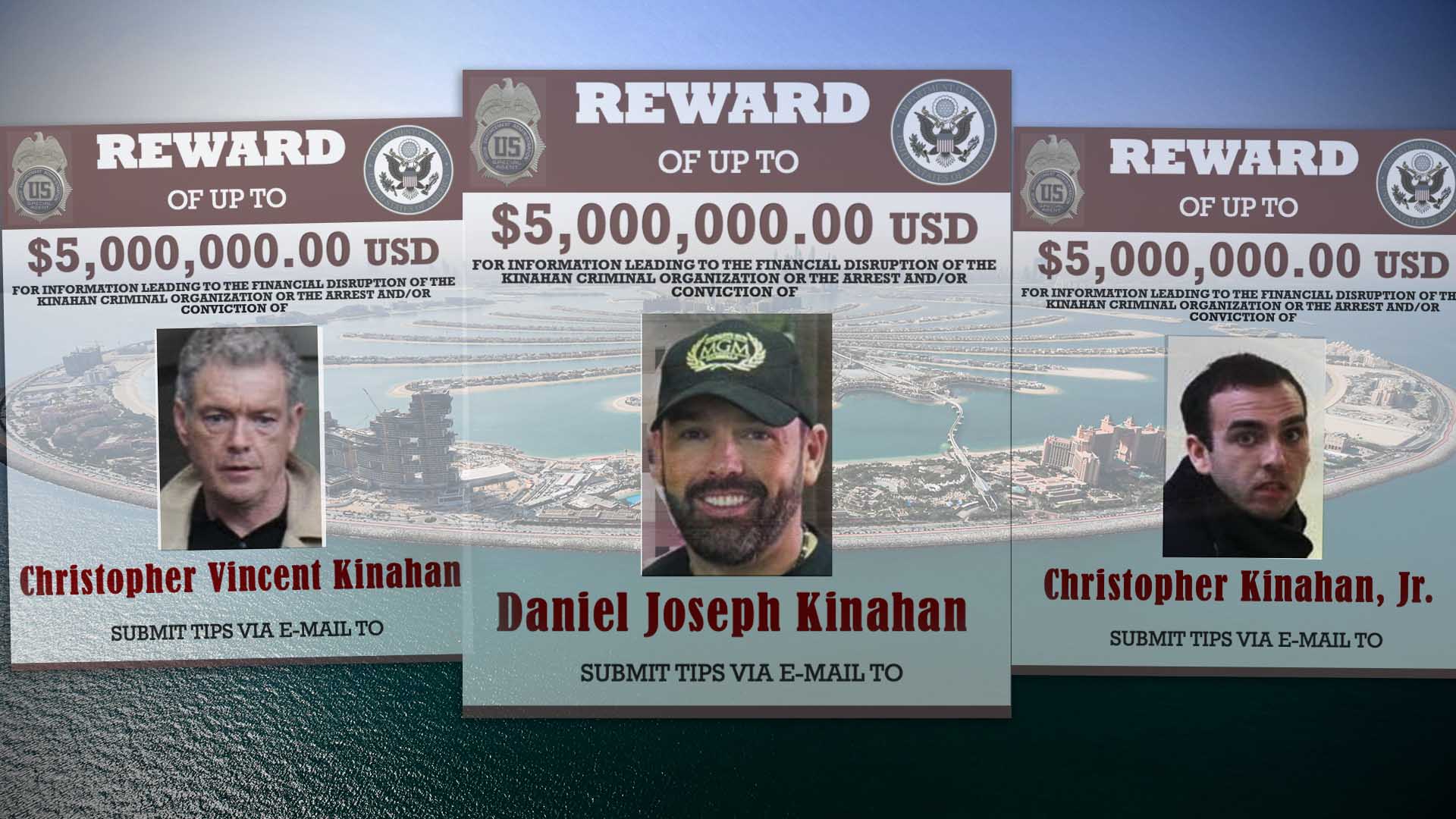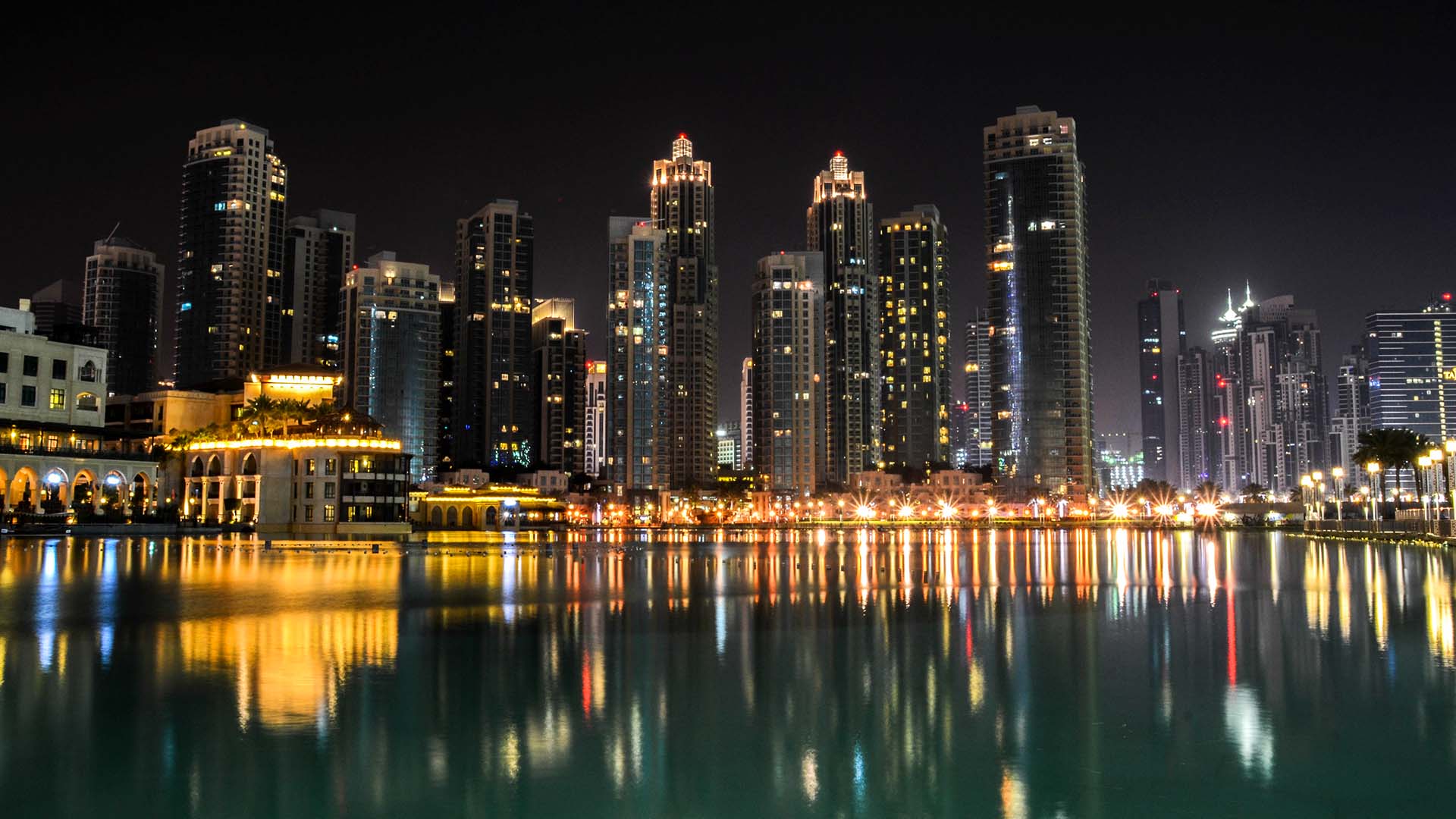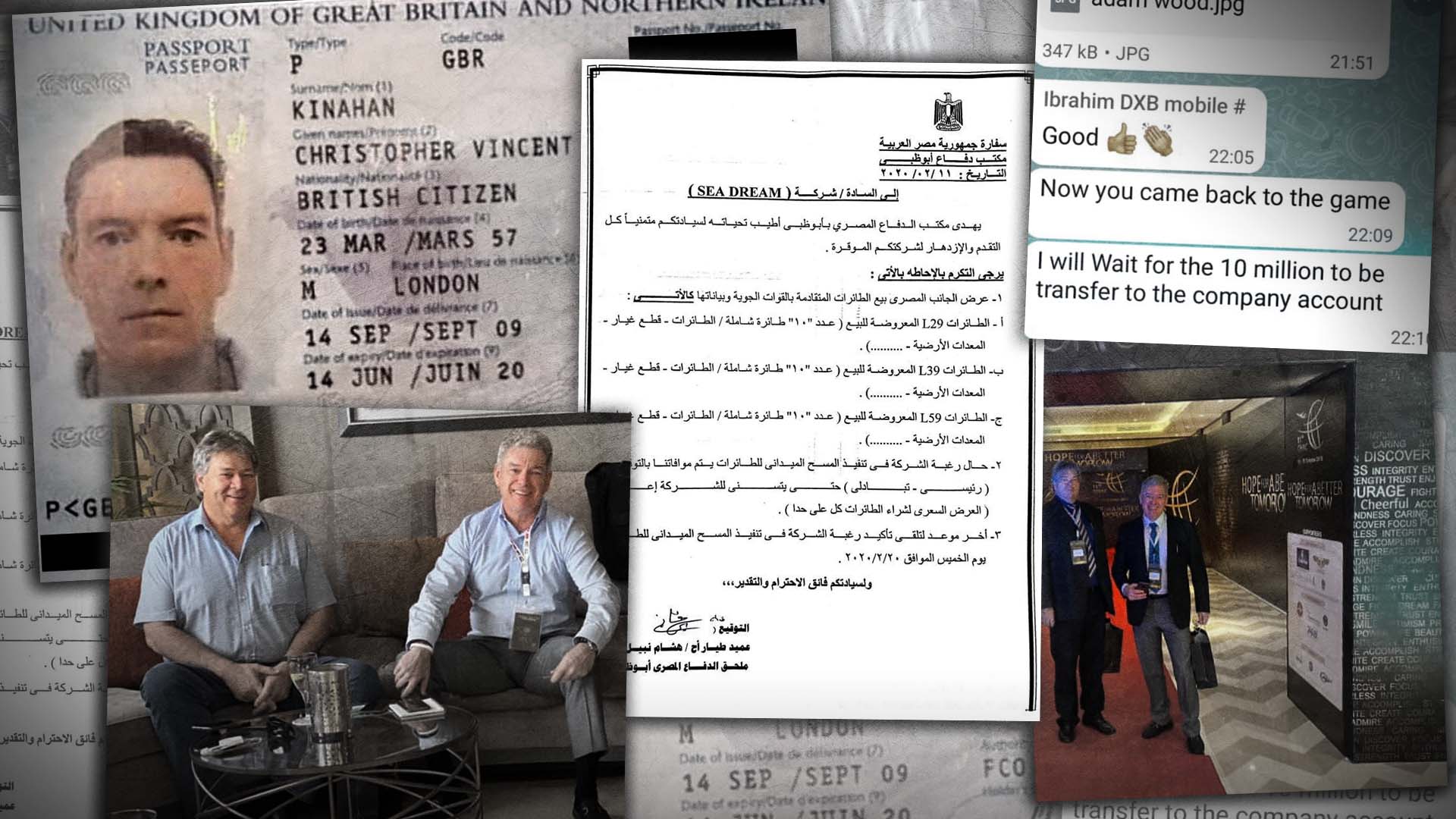CRIME CARTEL
Dubai property portfolio calls into question effectiveness of sanctions on Kinahan cartel leader, experts say
Caoimhe Robinson, wife of accused drug kingpin Daniel Kinahan, has bought and sold properties in Dubai as he faces U.S. sanctions, the Dubai Unlocked investigation reveals.
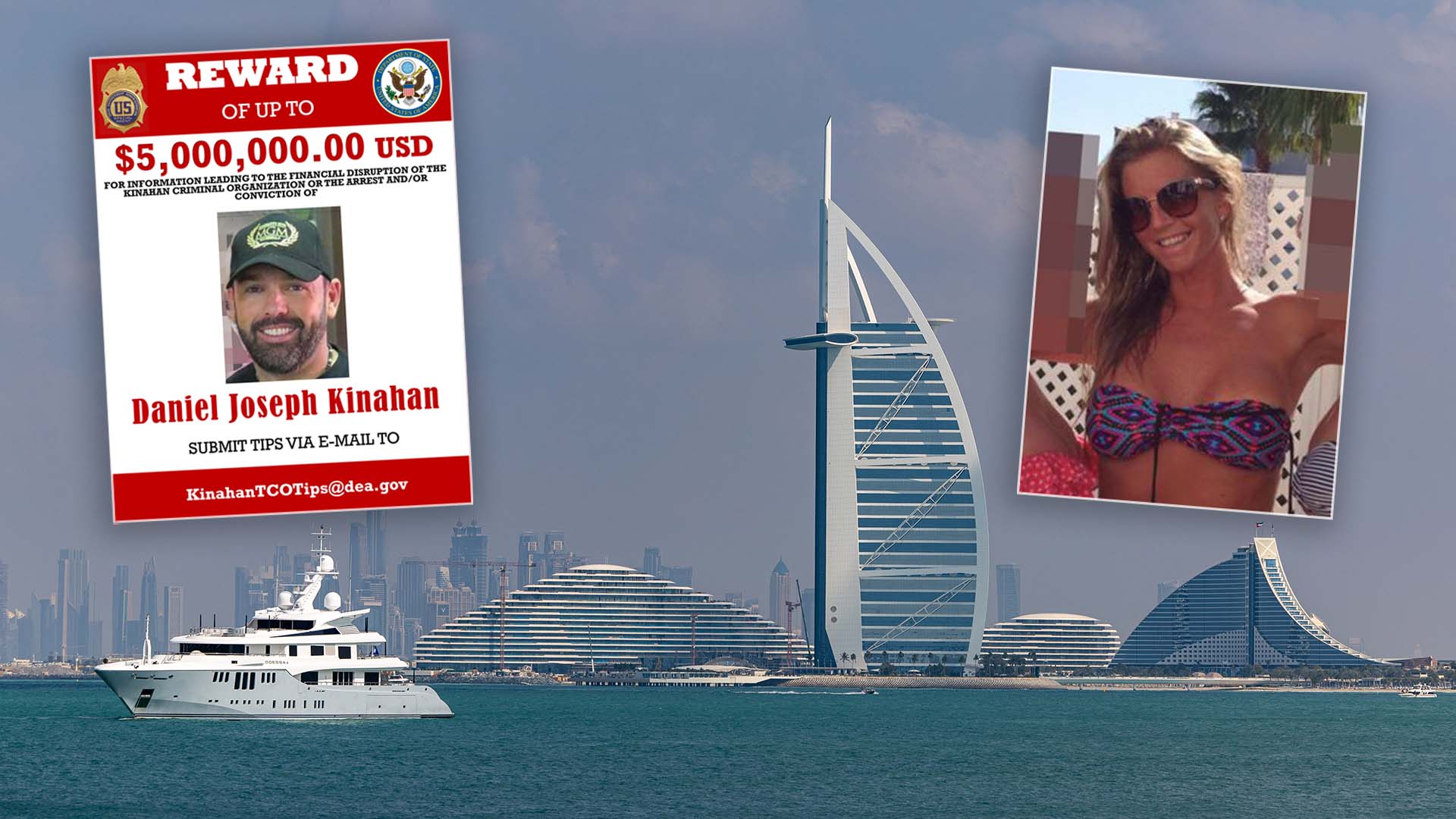
In 2023, Caoimhe Robinson bought a 20,569-square-foot villa, still under construction, for about $2.1 million in an upscale section of Dubai, close to Zayed University. Even unfinished, the structure’s white walls, arched doorways and red roof call to mind an elegant Mediterranean retreat, one befitting an area that one real estate website describes as “a true lifestyle destination.”
The villa is one slice of the Dubai property portfolio of Robinson and her husband, Irish boxing promoter Daniel Kinahan, who is accused of running a deadly global drug cartel.
Newly available documents show that Robinson has been buying and selling property in Dubai — even after the U.S. in 2022 hit Daniel; his father, Christopher Kinahan, his brother, Christopher Kinahan Jr.; and several of their associates with sanctions for alleged international drug smuggling and money laundering.
The U.S. Drug Enforcement Administration is also offering a $5 million reward for information leading to Daniel Kinahan’s arrest.
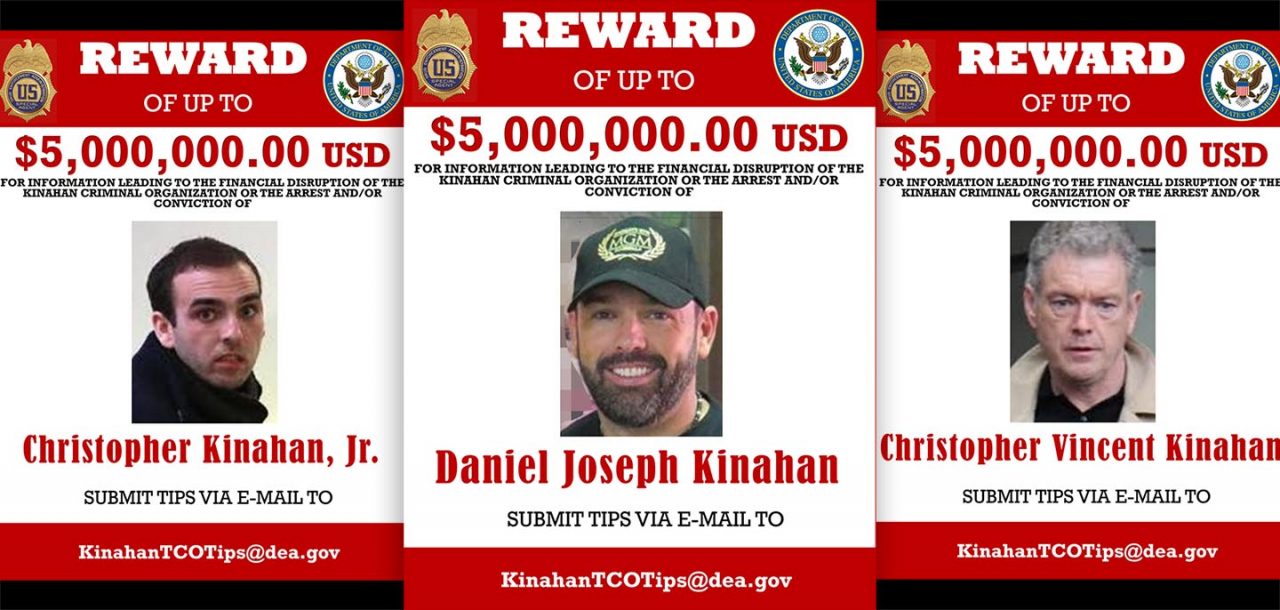
Kinahan is not the only suspected crime boss living in Dubai. The United Arab Emirates’ opaque financial system and lack of extradition treaties have made the country a magnet for some of the world’s most dangerous criminals and individuals evading sanctions. His wife’s property transactions show how easy it can be to get around sanctions.
An analysis of leaked property records and Dubai land records shows that as recently as 2022, Kinahan and his wife were listed as the owners of a combined total of four properties in Dubai, with Robinson selling at least one held in her name a few months ago.
In February, Robinson sold a luxury four-bedroom apartment in the fashionable Elite Residences skyscraper, overlooking Dubai Marina, for $1 million.
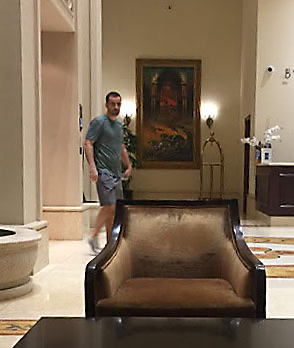
In 2018, Robinson bought an apartment in Al Mesk Tower, one of six residential skyscrapers of the Dubai Marina complex. Dubai land records show that Ian Dixon, one of Daniel Kinahan’s closest associates, had been renting the apartment since at least May 2017. Dixon had been paying nearly $40,000 a year to rent the one-bedroom property before Robinson bought it.
The U.S. Treasury Department sanctioned him for providing financial and technological support for Kinahan’s narcotics trafficking.
Robinson’s name also appears in the property data as a controlling party of an additional two properties: a villa in the Parkway Vistas development and another villa in the elite Emirates Hills neighborhood. Those properties were sold in 2022 and 2023, respectively. The International Consortium of Investigative Journalists couldn’t independently verify whether she was their actual owner, and they are not included in the tally of properties the couple own in Dubai.
Robinson has fought to keep the unfinished Mediterranean-style villa she bought in 2023.
The property was seized after she bought it and put up for auction as part of a separate legal dispute between the previous owner and another party. Robinson took the previous owner to court and had her ownership rights to the property reinstated; the auction did not take place. She was also awarded about $500,000 in compensation, according to court and tax records obtained by The Irish Times and ICIJ.
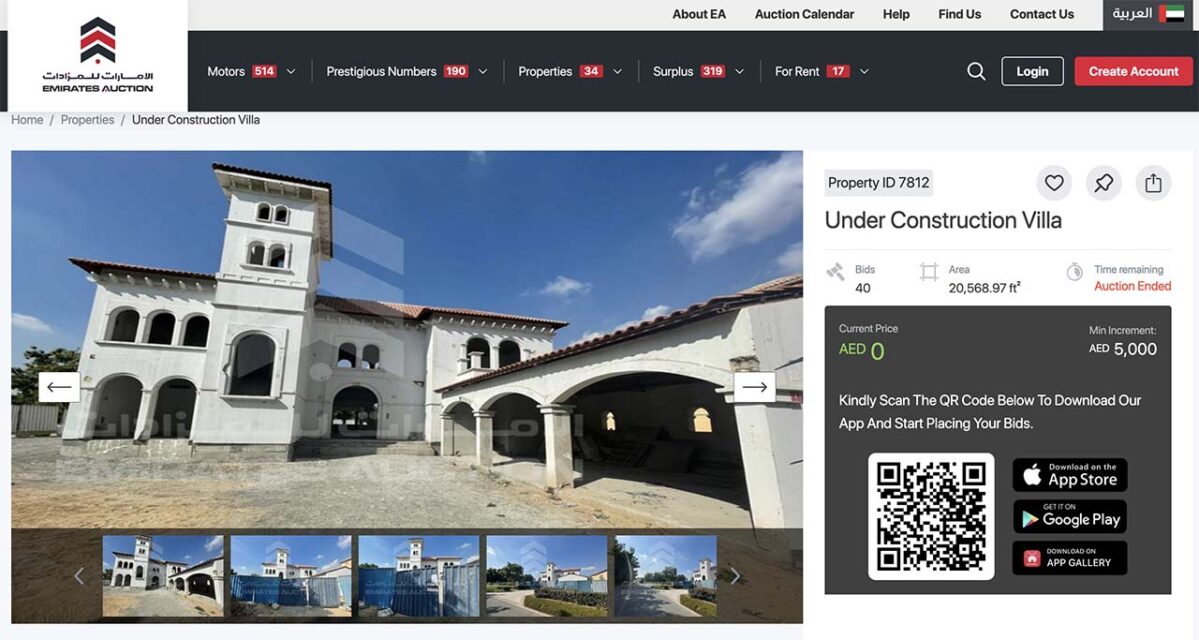
Daniel Kinahan had a separate spat over an office he bought in 2017. Located inside the glittering Jumeirah Bay X3 Tower, the office overlooks the dazzling Dubai skyline and is minutes from the lush greenery of the Emirates Golf Club. It is the former headquarters of two of his businesses: MTK Global, the now-defunct boxing and mixed martial arts promoter, and Ducashew General Trading . The Dubai land registry indicates that, in November 2023, Kinahan was blocked from selling the office because of a rental dispute and overdue service charges of $16,784. The records don’t say who blocked the sale.
In response to U.S. sanctions, authorities in the UAE froze Kinahan’s assets and blocked the sale of property owned by the Kinahan family members and companies under sanctions. But the sanctions don’t include some spouses and partners, which makes them less effective.
For example, the U.S. sanctioned Nero Drinks Co. Ltd., a U.K.-based alcoholic beverage company owned or controlled indirectly by John Morrissey, another close Kinahan associate. U.S. authorities say that John Morrissey has given a significant portion of the business to Daniel Kinahan to compensate for drugs seized by law enforcement, ICIJ reported in 2022. But the primary owner of Nero Drinks was Nicola Morrissey, who is married to John Morrissey and whom U.S. authorities say he uses as a front person; she has not been sanctioned.
The U.S. has also not sanctioned Robinson. The Treasury Department did not respond to requests for comment on its decision not to sanction her.
Asked about Robinson’s property transactions in Dubai, officials from An Garda Síochána, Ireland’s national police service, said they do not comment on named individuals who have not been or are subject to sanctions or arrest warrants as part of the international operation against the Kinahan Organized Crime Gang.
William McMurry, who served in the FBI’s New York office for 24 years and now heads W1 Global, a consulting firm that specializes in complex financial crimes, including fraud, corruption and money laundering, told ICIJ that the Kinahan cartel sanctions may be too limited.
It isn’t rocket science to note that the Kinahan cartel is a family business and the liquidation of assets in a secrecy jurisdiction like Dubai by the wife of the alleged chief of the cartel is likely to benefit them both.
— financial crimes consultant William McMurry
McMurry said that sanctions deployed too broadly could draw legitimate criticism that they punished individuals or companies unfairly but the Kinahan cartel sanctions appeared to present almost the reverse problem: they may be too narrow to be fully effective.
“I believe that sanctions can improve behavior but knowing how far to cast the net requires a delicate balance because their ramifications are lasting and every case is different,” McMurry said.
“Regardless, it isn’t rocket science to note that the Kinahan cartel is a family business and the liquidation of assets in a secrecy jurisdiction like Dubai by the wife of the alleged chief of the cartel is likely to benefit them both.
“Setting the Kinahan case further apart is the fact that Daniel Kinahan, his father, his brother and their close associates are facing grave allegations of criminality by several governments,” he said.
Roy McComb, former deputy director of the U.K.’s National Crime Agency, also questioned the U.S. decision to exclude Robinson from the punitive action.
“Any opportunity for organized criminals to launder criminal property should be challenged,” McComb said.
Robinson’s property transactions came to light as part of Dubai Unlocked, a six-month investigation into the UAE’s booming and secretive property market led by the Organized Crime and Corruption Reporting Project (OCCRP) together with more than 70 media partners, including ICIJ and The Irish Times. The investigation shows how oligarchs and criminals bought real estate in some of the most exclusive neighborhoods in the Middle East.
It is based on newly leaked property records dated from January 2022, which were obtained by the Center for Advanced Defense Studies (C4ADS), a U.S. nonprofit organization, and shared with E24, a Norwegian news outlet, ICIJ and other news media.
About the Dubai Unlocked data
The property records at the heart of Dubai Unlocked come from multiple leaks totaling more than 100 datasets, mostly from the Dubai Land Department, plus publicly owned utility companies.
The UAE authorities did not respond to the reporters’ specific questions but defended the country’s commitment to the fight against financial crimes. In an emailed statement to ICIJ’s U.K. media partner, The Times, an official with the UAE’s British embassy said that the “UAE takes its role in protecting the integrity of the global financial system extremely seriously,” and that the country “works closely with international partners to disrupt and deter all forms of illicit finance.”
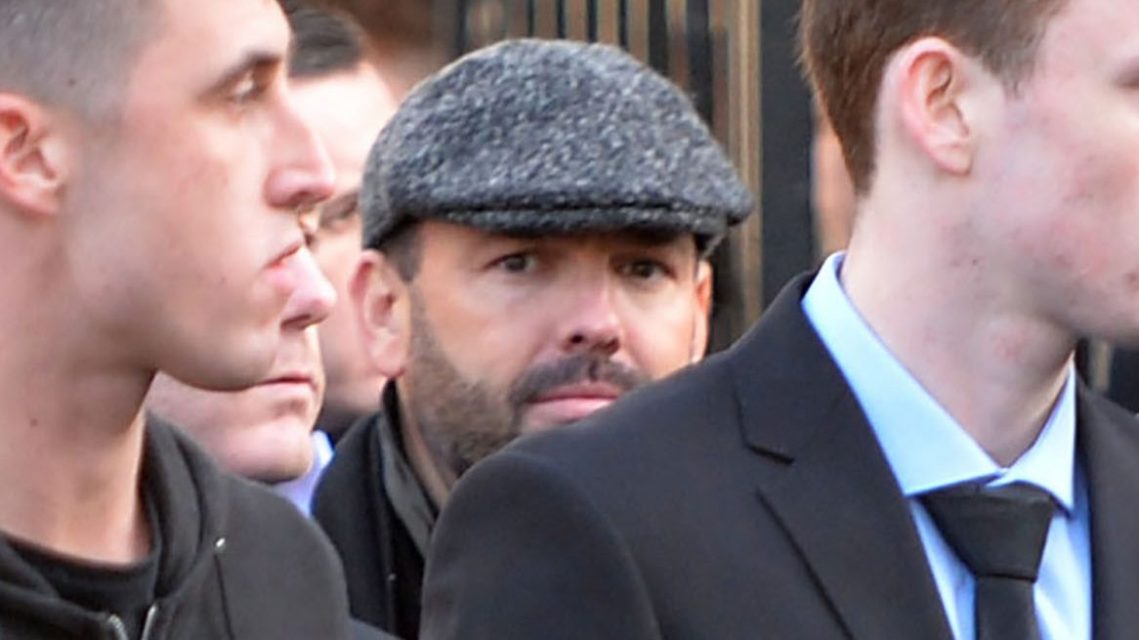
Irish drug gang goes global
The Kinahan crime cartel emerged in Dublin in the late 1990s and has since expanded internationally, now operating in the U.K., Spain and the UAE. The cartel has been linked to at least 20 killings in Europe, according to Europol, the European Union’s police agency. The gang set up hundreds of companies, many reportedly in the food and real estate industries, to hide and move huge quantities of cash made from selling drugs.
The Kinahans fled Dublin after the infamous 2016 assassination attempt on Daniel Kinahan at the Regency Hotel. In 2017 Kinahan and Robinson threw a lavish wedding party in Dubai. (Robinson’s previous partner, gang boss Micka “The Panda” Kelly, was shot and killed in Dublin in 2011 in a gang-related attack.)
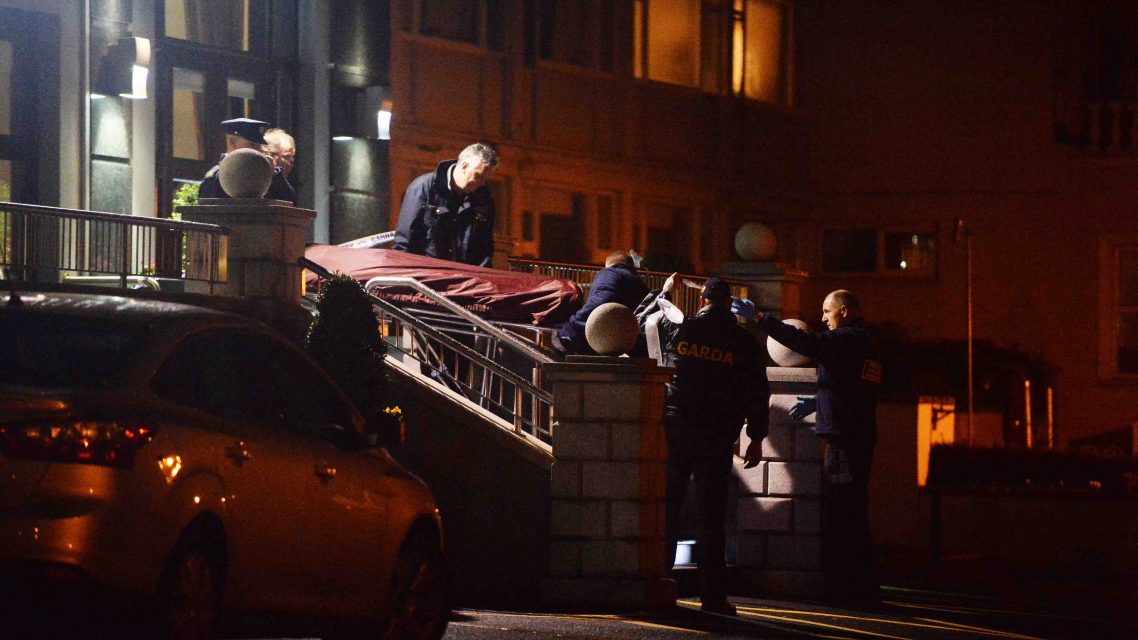
Guests at the secret celebration, held at the exclusive Burj al Arab hotel, included crime bosses from all over the world who authorities allege, along with Kinahan, had formed a “super cartel.” Among them were Dutch mobsters Ridouan Taghi, accused assassin and ringleader of the Angels of Death gang, and Naoufal Fassih; Dutch-Chilean gangster Ricardo Riquelme Vega, aka El Rico; and Italian Camorra crime boss Raffaele Imperiale, according to news reports.
Undercover DEA agents also attended, and some of the guests were later arrested. Taghi was extradited back to the Netherlands in 2019, stood trial and in February 2024 was convicted of murder, firearms offenses and aggravated robbery, and sentenced to life in prison. Imperiale was arrested in Dubai in August 2021 and extradited to Italy in March 2022.
Meanwhile, Daniel Kinahan’s father, Christopher, tried to set up a home and a business in Africa. In 2022, ICIJ reported that several companies controlled by the Kinahan cartel attempted to buy nine aircraft from the Egyptian military in 2020. But the deal fell apart.
The Irish national police have said they are negotiating a deal with the UAE to extradite the Kinahans to Ireland to stand trial.
Conor Gallagher is a reporter with The Irish Times.
Contributing reporter: Jérémie Baruch (Le Monde)
